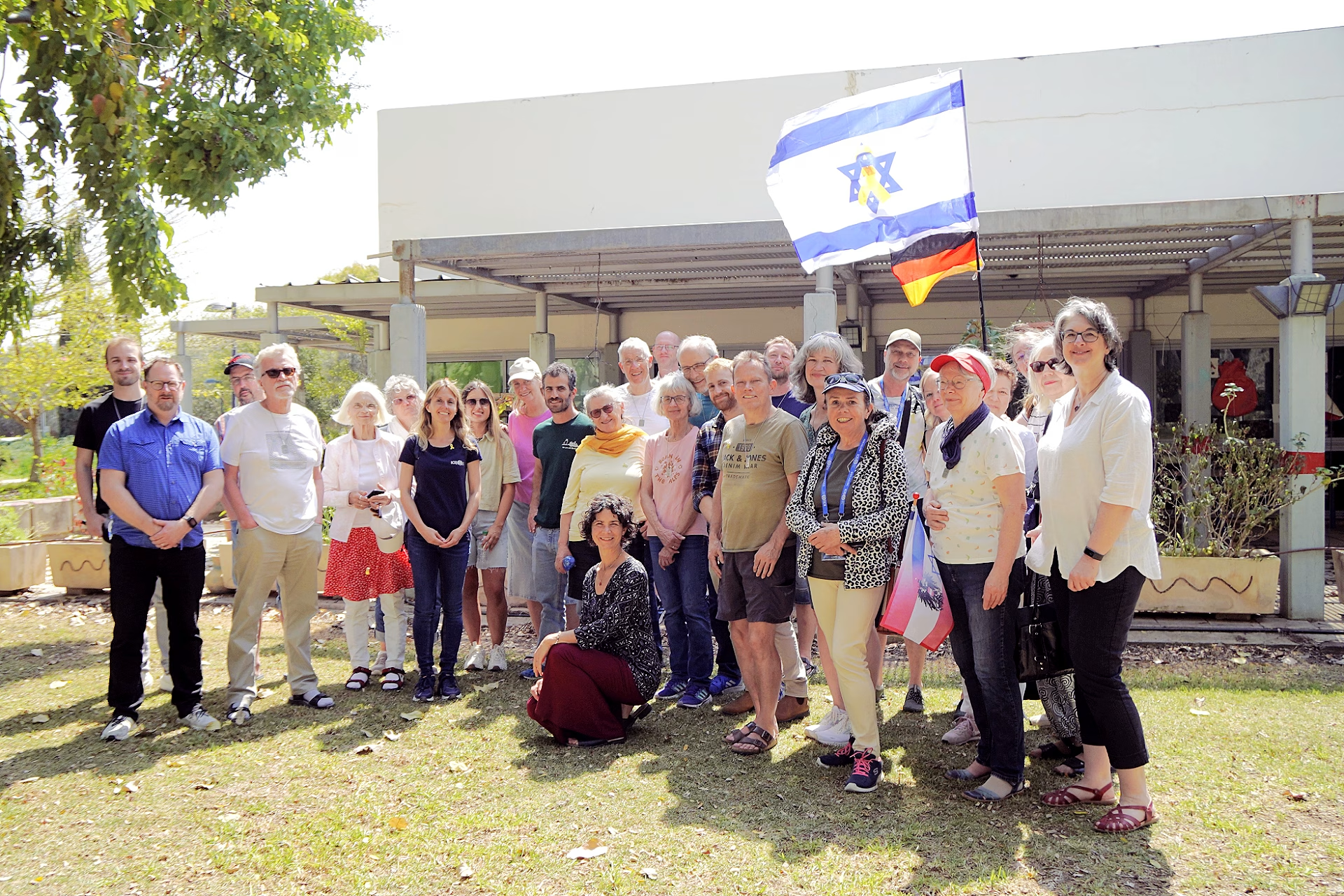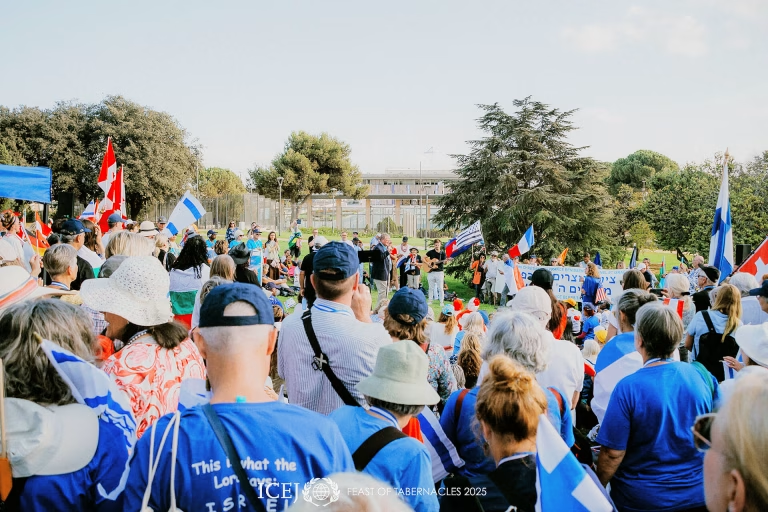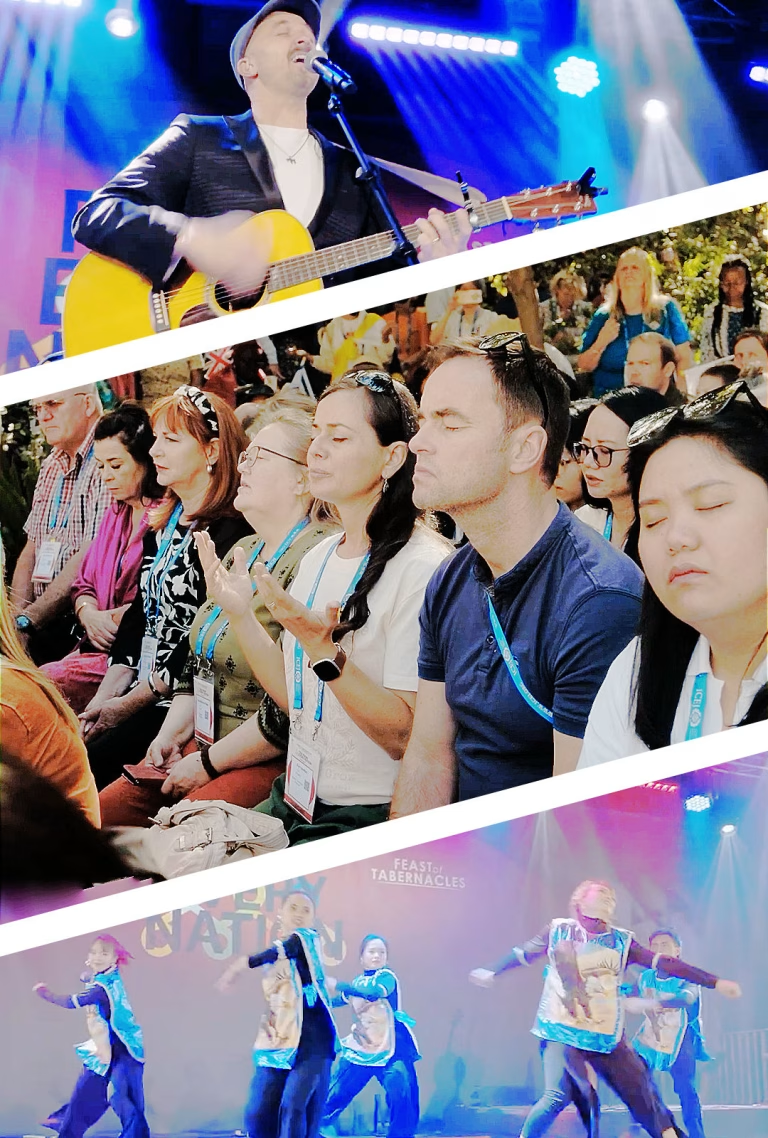A German prayer tour led by Christof and Kirsten from ICEJ-Germany recently visited Israel. Their tour included a visit to the Gaza border communities devastated by the October 7 attacks. The group came not only to see and understand, but also to stand in prayerful solidarity with the people of Israel.
Walking across the shattered roof tiles of Kibbutz Be’eri, the sound underfoot is sharp and brittle, like a memory breaking open. The beautiful sound of birds chirping in the air contrasts with the burned buildings.
This was once a place of peace, described by one resident as “99% heaven, and 1% hell.” But on October 7, 2023, hell took over.
“We have no words to describe what happened here,” said one of Kibbutz Be’eri’s rebuilding efforts leaders. “But we choose to live. To stand strong. And with your assistance, to rebuild and come back home.”
That day, over 400 terrorists stormed the kibbutz. 102 civilians were murdered, friends, neighbors, entire families. More than 120 homes and 11 public buildings were destroyed.
Inside their safe rooms built for rocket protection, not for human invasion, families clung to door handles while terrorists tried to break in. When they could not, they set homes on fire. People choked. Some jumped from windows. Others never made it out.
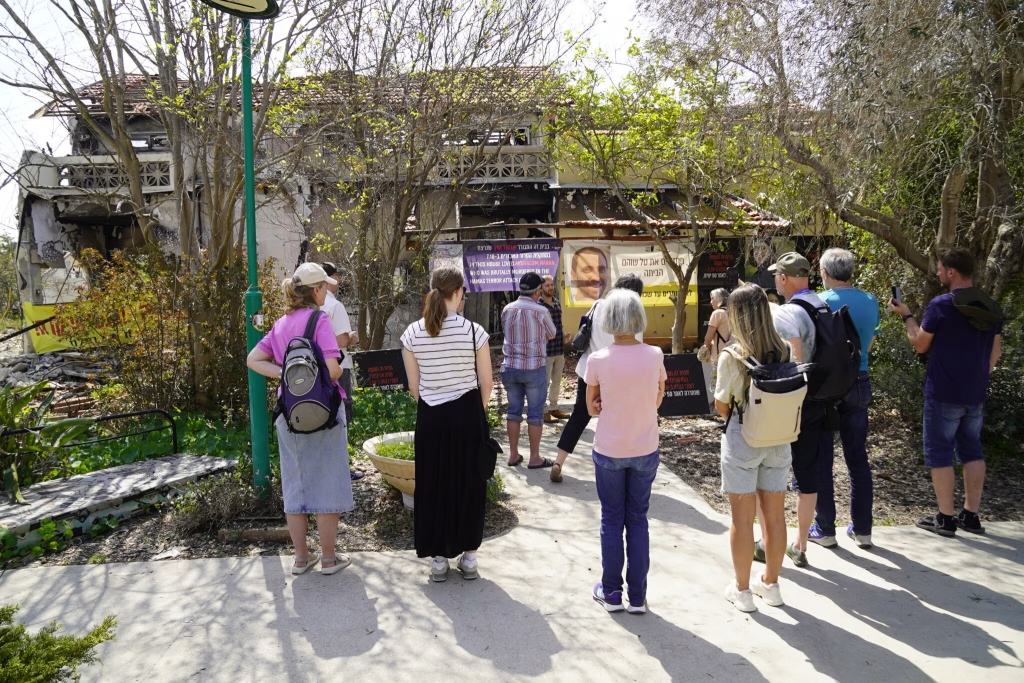
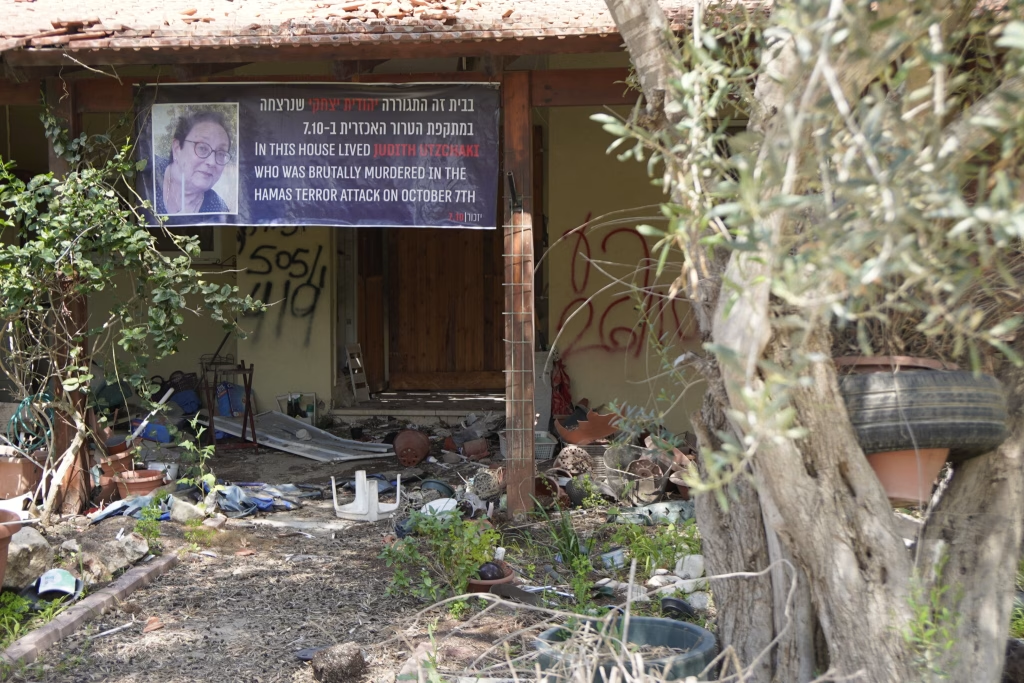
Niv, a resident, was away that day, called up by his army commander to defend another kibbutz. His mother and siblings huddled in fear back home.
“My mom texted that she couldn’t talk; the terrorists were outside the house,” Niv recalled. “After hours of terrifying silence, I heard that all my family was rescued by the army. But I couldn’t reach my aunt. Later, I found out she had been murdered. She was 66 years old. My grandfather, a Holocaust survivor who moved here decades ago, lost his daughter that day.”
In the heartbreak, Niv decided to leave Tel Aviv and return to Be’eri, to help rebuild.
“We all know each other here. This is a small community. We’re living in temporary housing 40 minutes away now. We hope to come home in two years.”
This story, one of too many, was shared with the German prayer delegation.
“To laugh and to smile is the best human reaction,” said the Be’eri representative. “The connection between Kibbutz Be’eri and the ICEJ shows the beauty of being human. You have our utmost gratitude for coming here and becoming part of our family.”
ICEJ Vice President for AID and Aliyah Nicole Yoder accompanied the prayer tour and shared a message of encouragement: “It’s an honour for us to be with you in such a difficult time. We are praying for your strength. We believe there is a good future for Be’eri, for Israel, and for every person on this kibbutz.”
Among the hardest hit are the elderly, including many of the kibbutz founders.
“Fifty-one of our elderly residents have lost their closest friends,” said the kibbutz spokesperson. “We must ensure they are not alone, that they are surrounded by support. Research shows grief and loneliness shorten lives. We must provide cognitive workshops, physiotherapy, and everything they need to heal. Through Ne’ot Be’eri, an elderly center sponsored by ICEJ, this can and will happen.”
“This is not a sprint,” they added. “It’s a marathon. Thanks to people like you, we can see a future.”
As we continued the visit, we entered Avshalom Haran’s home that was turned into a charred ruin when terrorists attacked with flamethrowers, leaving soot-covered walls, shattered pottery, melted fixtures, including the ceiling fan and reducing the structure to a skeletal structure. Avshalom was killed inside, defending his wife and daughters, who survived unharmed in the safe room.
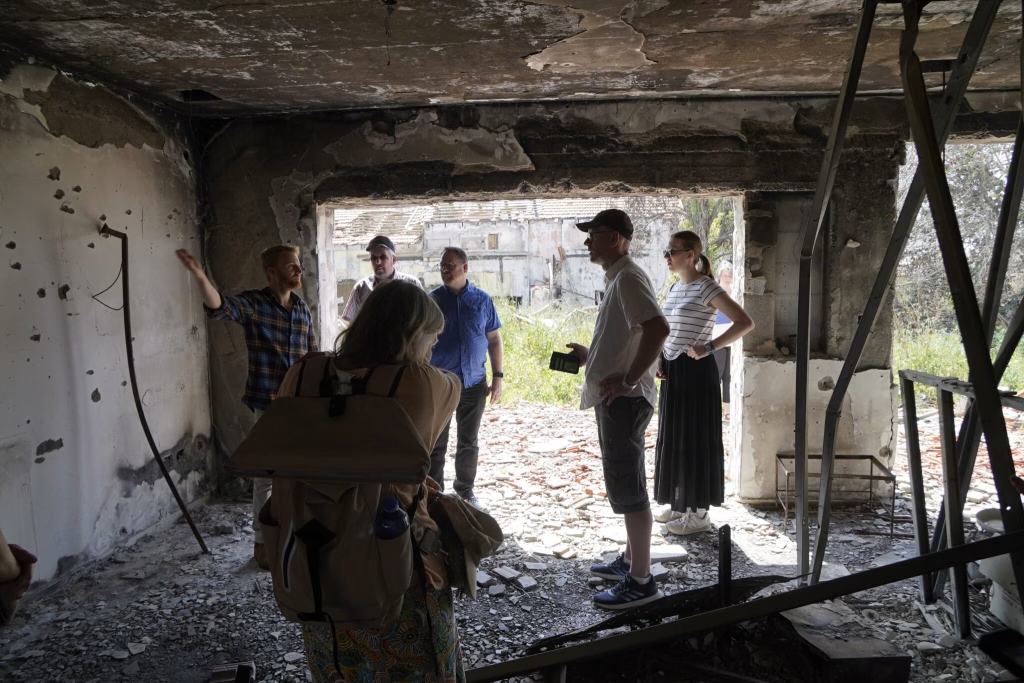
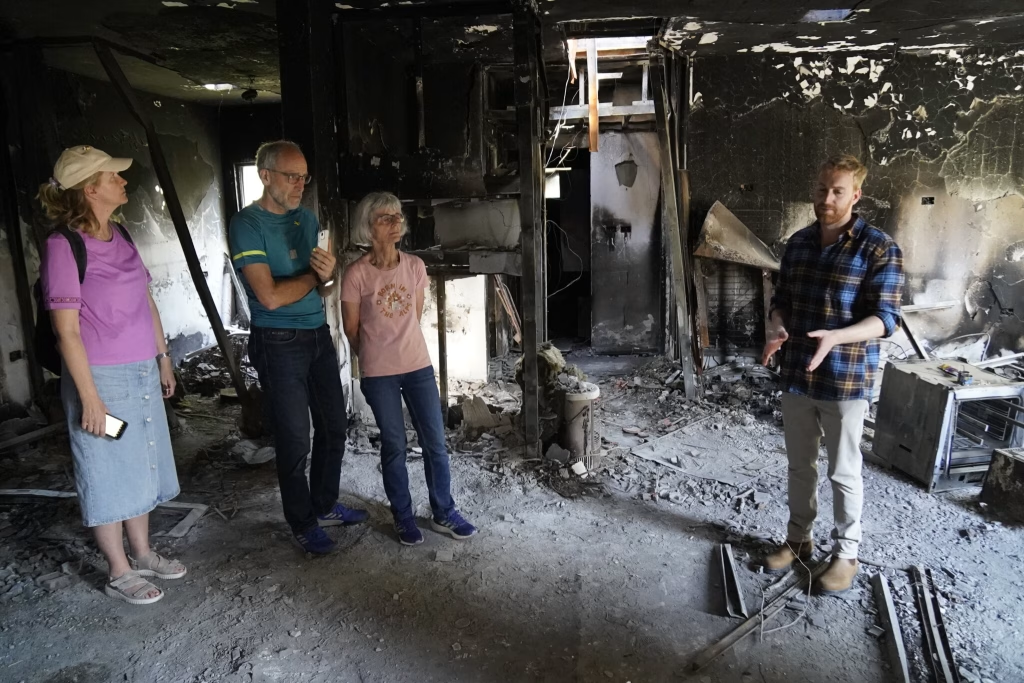
The scale of the October 7th attack stretched far beyond Be’eri. The strategic precision of the assault becomes clear in a briefing with the Eshkol Regional Security Chief.
“We weren’t ready,” he admitted. “They hit us militarily and mentally. They took out communications, stormed 32 communities, attacked military bases and ambushed major junctions all at once,” stated the Eshkol Regional Security Chief.
In the Eshkol region alone, 244 civilians were murdered, not including Thai and Arab workers, and 119 were kidnapped.
“They didn’t care who they killed: Jews, Arabs, Thais. They just killed whoever they could.”
First response teams played a critical role. In some communities, their resistance prevented further civilian loss.
“In Nir Yitzhak, six of our responders were killed, but no civilians. In Kerem Shalom, two responders were killed, but no civilians. But places like Nir Oz and Be’eri didn’t have that protection in time,” he said.
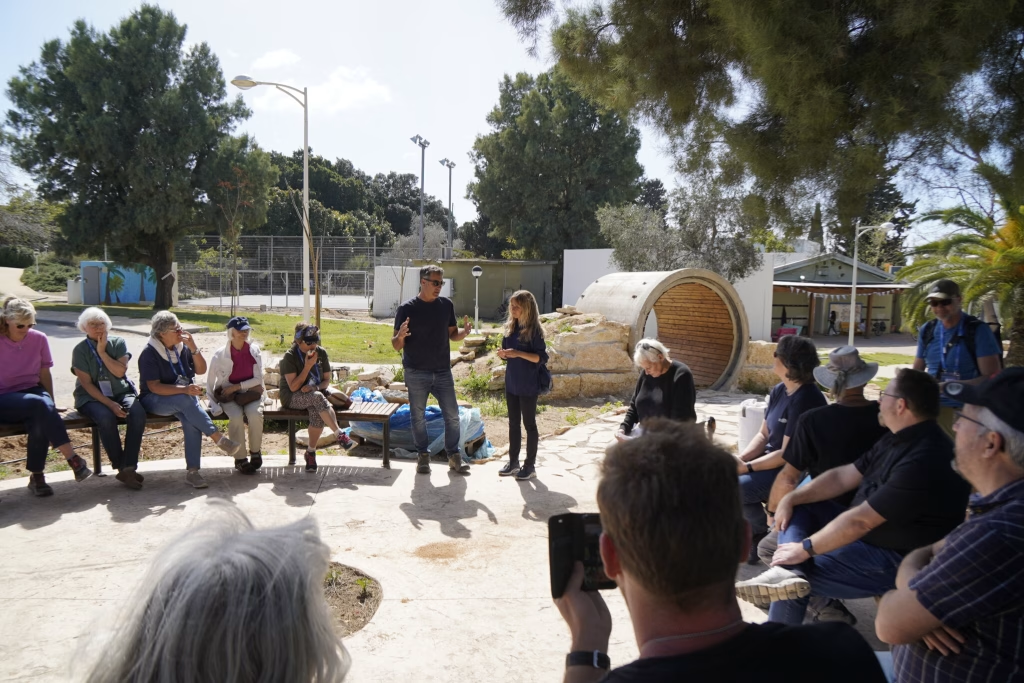
Visiting Kibbutz Be’eri and meeting the Eshkol Regional Security Chief gave the German group a deeper understanding of what happened and what will happen next. They left with a deep sense of hope: that better days are coming for Israel, that the Lord has a calling and a purpose for this nation, and that He will rebuild. And we are honored to join in His work, helping to restore and strengthen the borders of Israel.
The ground may still bear the weight of destruction, but the brokenness is being met with action and with love. In Be’eri and across the Eshkol region, the story is not only of devastation but of a determination to live, to remember, and to rebuild. Please consider supporting our Renew and Rebuild Israel Fund to help rebuild devastated communities.


